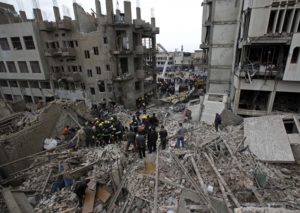
Last February, Turkish pro-government sources proudly boasted that Turkish Foreign Minister Mevlüt Çavuşoğlu pledged the most money in the region towards Iraqi reconstruction while attending an international donors conference in Kuwait City. The three-day event brought together civil society representatives, high-level government officials, and NGOs. A total of $30 billion of the requested $88 billion from the Iraqi government was raised. Çavuşoğlu tweeted, Iraq is “a neighbor, friend, and reliable partner, we will always stand by our Iraqi brothers.” The pledge did not come as a surprise to experts as Turkey’s economic growth, domestic security, and regional aspirations are tethered to both Baghdad and Erbil.
Turkish relations in Iraq have been a balancing act between the Kurdistan Regional Government of Iraq based in Erbil and the Iraqi Federal Government in Baghdad. As former U.S. Ambassador to Ankara, James Jeffrey states, “Turkey wants to keep both eggs in the basket.” Bilal Wahab an expert on Iraq and fellow at The Washington Institute for Near East Policy described, “I wasn’t surprised [at the pledge] because Iraq has been, the KRG in particular, the 2nd or 3rd largest trade partner with Turkey.” In 2010, Turkish relations with Baghdad soured during the campaign and re-election of Nouri al-Maliki, the former Prime Minister of Iraq, due to his growth in authoritarianism and spread of detrimental sectarian rhetoric in Iraq.
For some time now, Turkey has been trying to play a prominent role with their southern neighbor. For instance, during the Mosul offensive in October 2016, against IS, Ankara tried to step up to the plate. Turkish President Recep Tayyip Erdogan adamantly expressed his desire for the participation of the Turkish Armed Forces (TSK). At the time, these wishes were deterred with vocal international opposition by the West and Baghdad’s leftover anti-colonial sentiment of the Ottoman Empire.
However, Ankara and Baghdad maintained a relationship of tolerance and at times tension with one another until September 25th, 2017, when Kurdistan Regional Government (KRG) leader Masoud Barzani spearheaded the highly controversial Kurdish referendum for independence from Iraq. This played well into Turkish fears that any autonomous Iraqi Kurdish government would trigger a domino effect of independence fervor within the sizable Kurdish minorities in Syria, Iran, and ultimately Turkey. Playing into these fears, Tehran expressed full support of both Ankara and Baghdad by temporarily enacting various prohibitions on the autonomous region. Bringing the ultimate defeating blow to Iraqi Kurds was the former U.S. Secretary of State Rex Tillerson’s expression that “the vote and results lack legitimacy” due to the sensitive timing of the referendum.
By the end of September 2017, Turkey had tilted its diplomatic balance from Erbil to Baghdad With no international backing, the isolated Iraqi Kurdish referendum drastically failed. To Ankara’s advantage, their unwillingness to accept Barzani’s undertaking did not disrupt the $2.5 billion trade between the KRG and Turkey. Nevertheless, the swift recovery of relations between Ankara and Erbil did not desensitize Ankara and Baghdad to closely cooperate by taking advantage of the mutual ground created by the Kurdish self-determination efforts. Wahab states that “Turkey did not lose the KRG, but Turkey also gained Iraq [Baghdad]. I would say it is a win for Turkey.” Just weeks after the referendum Iraqi Prime Minister Abadi visited Turkey. He encouraged an agreement that Baghdad would help fight the terrorist organization Kurdistan Workers Party (PKK) and initiated talks to replace the war-torn Kirkuk–Ceyhan Oil Pipeline.
Iran’s initiatives have had the worst overall impact on Iraqi Kurdistan. The newly gained territory during the deterioration of the Islamic State by the KRG, such as the city of Kirkuk, was promptly taken back by the Iraqi Government forces in October 2017. Wahab claims, “Iran sent agents to help Iraqis take Kirkuk. I mean the plan to take back Kirkuk was orchestrated by Iran, it was masterminded by Iran. So Turkey didn’t do any of this. On the contrary, the Kurdish Prime Minister has been asking, pleading to have a meeting with Erdogan.”
To an extent, this recent shift to Baghdad has undermined the KRG which Ankara still needs for trade and their growing energy demands. Diliman Abdulkader, the Director of the Kurdistan Project at the DC think tank Endowment for Middle East Truth (EMET), argues, “The investments can be viewed as a sign to Erbil, that Turkey is for the unity of Iraq and we [Turks] will continue to strengthen that unity, but I think the Kurds understand this now.” On the same line as Turkish foreign policy, Rex Tillerson commented that the United States supports “a united, federal, democratic and prosperous Iraq.”
The United States and Turkey have shared a strenuous relationship these past couple months. However, Iraqi reconstruction is on both of their agendas and would be a unique opportunity for cooperation. Former Ambassador Jeffrey states that “Turkey is interested alongside the United States to curb Iran. There are already bilateral talks between Turkey and the United States in place [on Iraqi reconstruction]. America’s and Turkey’s view is for Iraq to be fully integrated to the West rather than have an Iraq drifting towards Iran. The issue is that both Turkey and the U.S. have deep ties in Iraq that at times compete.”
Unlike in Syria, in Iraq, the two NATO allies share common interests. These include: keeping federal unity in Iraq, limiting Iran’s sphere of influence, and stability for Iraq’s economy- with an overlapping theme of Iraq integrated into the West.
There are many hurdles for the immense endeavor of Iraqi reconstruction. The instability and war-torn country faces 5.7 million displaced citizens that find difficulty in returning home. Nearly 60 percent of Iraqis are under the age of twenty-five and many have witnessed a halt in their education. There are still mine hazards, policing issues, and post-war reconciliation talks necessary in order to resume daily life. Above all, the country has a colossal issue with corruption even though substantial governmental reforms are to begin. For the time being, raising $30 billion at the Kuwait City summit is a small success story for Iraq, one that presents a unique opportunity to patch ties between historic allies on mutual grounds.
Turkey has not disclosed specifically how the $5 billion pledge would be implemented. There is a lot of uncertainty whether this money will in the form of sovereign loans, donations, or private investments. Wahab states “the Turkish pledge is a government pledge of $5 billion, the American one is more of a credit line for American investors to work in Iraq.” The Iraqi elections next month, the abrupt departure of U.S. Secretary of State Rex Tillerson, and Turkish President Erdogan’s calls for the TSK attacking Manbij after Afrin raised valid complications for cooperation. However, for the first time in a long time, the Americans and the Turks share a corresponding agenda in the region.
(*) Egecan Alan Fay is Turkish-American Researcher. He received his BA in Middle Eastern Studies in 2017 from Florida State University.
Source: The Washington Institute. 04-05-2018
http://www.washingtoninstitute.org/fikraforum/view/iraqi-reconstruction-ankara-baghdad-and-erbil


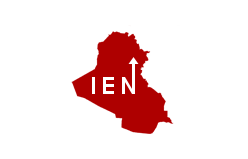

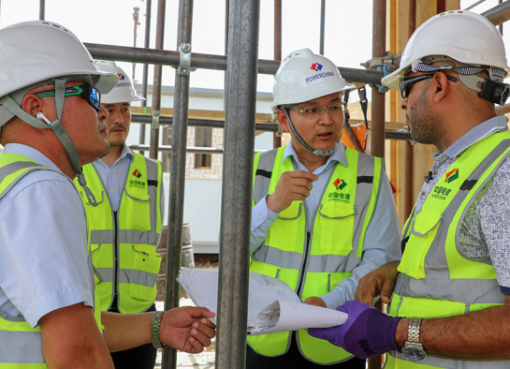
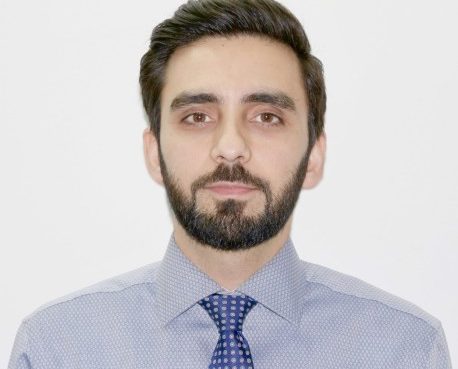
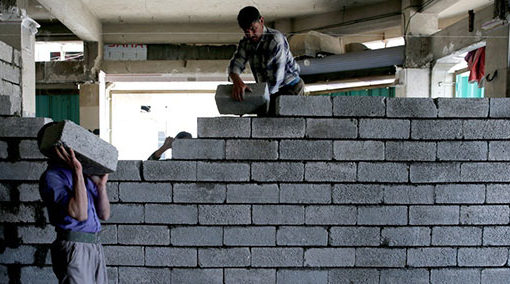

Comment here